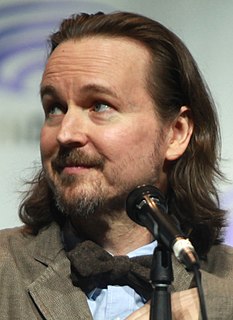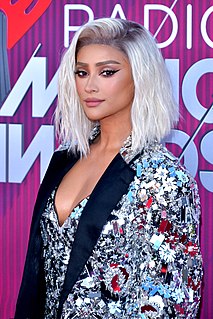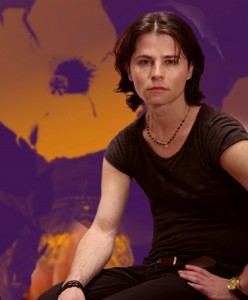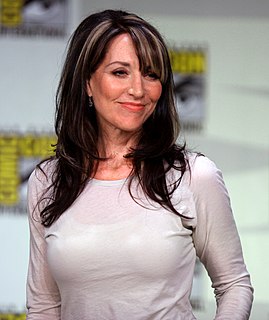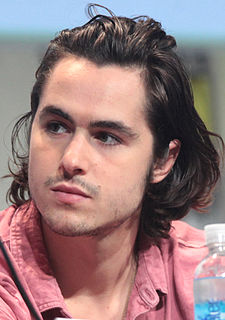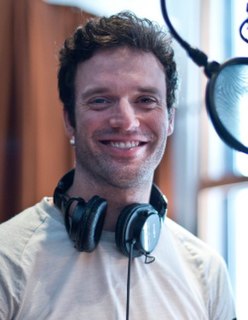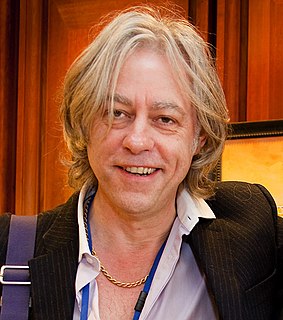A Quote by Matt Reeves
I think there's a level at which you think that there's a reason that you're being singled out, that you're being chosen. As a kid, I was always mistaken for a girl. Before you reach that age where your sexuality starts to display itself, kids can look very androgynous, and I guess I leaned more toward the feminine. All those things were very hard, growing up, because you're trying to create an identity, and you're feeling shameful about the one that you're making. So, I identified with it a lot.
Quote Topics
About
Age
Always
Androgynous
Because
Before
Being
Being Single
Chosen
Create
Display
Feeling
Feminine
Girl
Growing
Growing Up
Guess
Hard
Identified
Identity
Itself
Kid
Kids
Level
Look
Lot
Making
Mistaken
More
Out
Reach
Reason
Sexuality
Shameful
Singled
Starts
Things
Think
Those
Toward
Trying
Up
Very
Were
Which
Your
Related Quotes
Being gay, you're kind of forced to ask, I suppose, very existential questions from a very, very early age. Your identity becomes so important to you because you're trying to understand it, and, I think, from the age of, like, 9, you're being forced to ask questions... that other kids maybe don't have to ask.
I think 'Speech & Debate' surprised people because it's a play about teenagers that took the teenagers very seriously. They are very real. People wanted to see if they identified with one of the kids, that loneliness, that yearning for something bigger. That feeling of being stuck, it's very adolescent, but those kinds of feelings linger on.
I feel like I'm changing as a human being, and I think that the work needed to be in line with where I'm at. When I was younger and I was making political work, I was trying to figure out where my work fit in because when you're young you're like, "I don't know." I'm Latino, I grew up in Mexico, and so I thought that maybe I had to talk about those things. Then finally I didn't need my identity to rely on anymore. So now the work is becoming about more esoteric things, I guess - my own sort of language.
I think it's to do what's important to you, and having a lot of people - hopefully - listening to your work. It also involves being a credible artist, and being able to reach out to those who will buy into it for some other reason. But on a more personal level, success comes from having many close and strong relationships.
Right now, women's worth is being quantified by how they look and their Instagrams and likes. That's all so self-created, so why are we trying to add to that? It's hard enough to be a young woman, or man, growing up and trying to find your identity, rather than having a whole Internet of people weighing in on it. It makes me sad for those kids.
I was the kid in the class who was looking for the angles to question things or make wise-ass remarks, not knowing enough to be afraid of being myself or showing intelligence. But I wasn't the only kid like that in my classes because of where I grew up. I'm really thankful I grew up in a town where there were a lot of other mutant kids. I'm from Boulder, Colorado, which went through a lot of dramatic changes when I was growing up.
To me, paintings are about beauty. They are very feminine, and beauty is something very feminine. For a long time, people would talk with me about identity. I don't have issues with identity, I just follow this kind of feminine beauty because I became a victim of my art, which I think is the best thing for an artist. So many artists use their talent, but with the best artists, their talent uses them.
I have this very kind of like heterodox idea of what an education is, what underpins identity. I don't think I'm very easily pigeon holed in any of those boxes, so I confront this. I have a staff full of young people who came up in a very different tradition and who feel very fired up about the big identity battles. I listen and I try to navigate them, but I don't find them mapping onto my life in a personal way which is, which is hard.
I didn't have a fraternity-like experience. I mean, I grew up with an older brother and a lot of male cousins and we were very physical with each other. We were very rambunctious when we were kids. But I never thought much - nor did I have reason to think much - about institutionalized hazing. But I think there's a reason young men are drawn to it.
